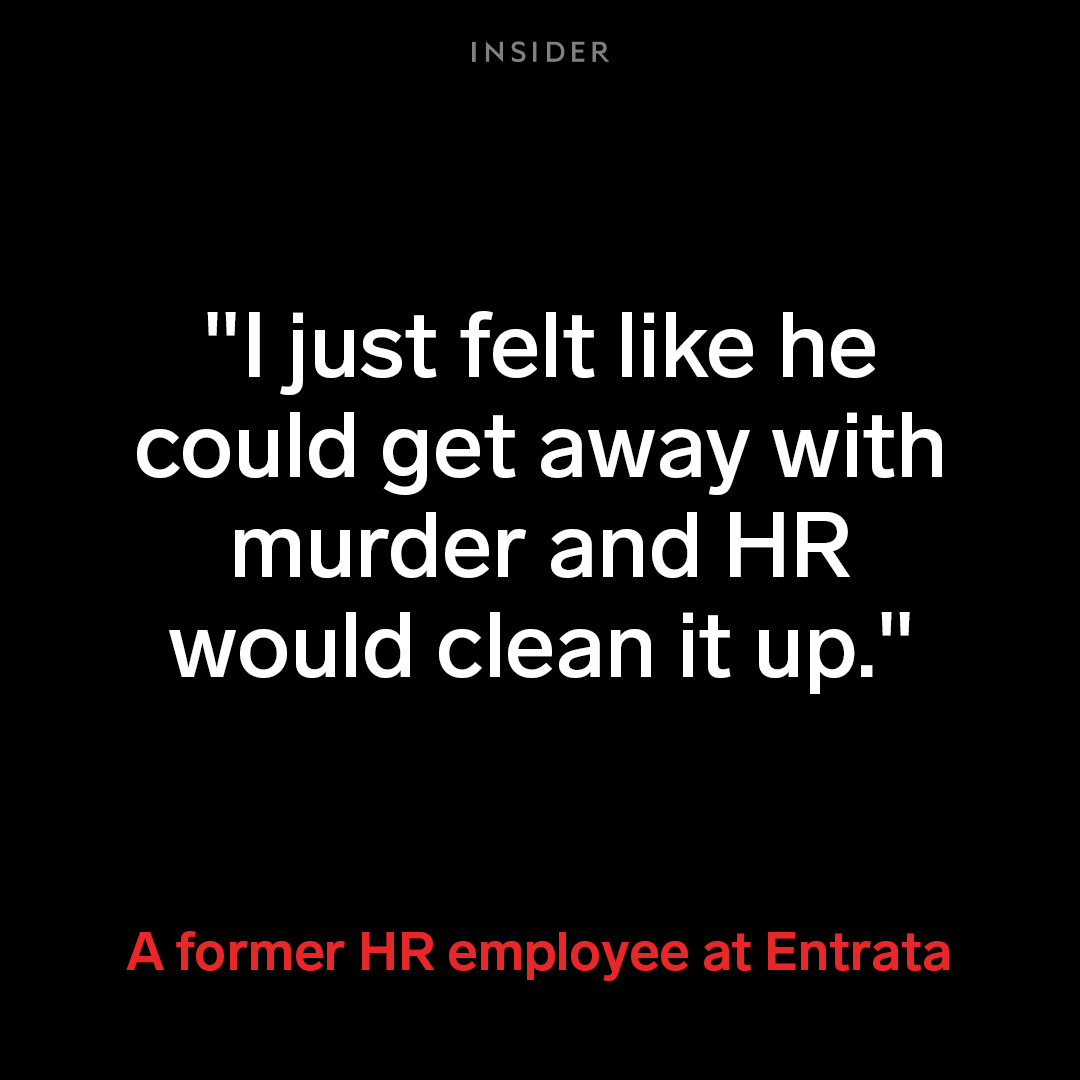Dave Bateman, co-founder of @EntrataSoftware, a major Utah real-estate software company, spent years mired in misbehavior.
The antisemitic conspiracy-theory email he sent was just the beginning of Entrata's controversy. 👇
businessinsider.com/dave-bateman-e…
The antisemitic conspiracy-theory email he sent was just the beginning of Entrata's controversy. 👇
businessinsider.com/dave-bateman-e…

When Bateman launched a real-estate software company called Property Solutions in 2003, he was at the forefront of Utah's growing tech scene, nicknamed Silicon Slopes.
The company — later renamed Entrata — provides tools for apartment owners.
businessinsider.com/dave-bateman-e…
The company — later renamed Entrata — provides tools for apartment owners.
businessinsider.com/dave-bateman-e…

Bateman's profile rose alongside Entrata's.
He answered to no one at Entrata — until recently, the board was just him and an early investor. He vehemently rebuffed investor dollars that could have made him rich but would have taken away his control.
businessinsider.com/dave-bateman-e…
He answered to no one at Entrata — until recently, the board was just him and an early investor. He vehemently rebuffed investor dollars that could have made him rich but would have taken away his control.
businessinsider.com/dave-bateman-e…

One employee recalled Bateman bursting into his office in 2014, just as Entrata hit its stride, and declaring that he had fallen in love with his secretary and was done with all of it: marriage, family, and business.
businessinsider.com/dave-bateman-e…
businessinsider.com/dave-bateman-e…

Bateman’s plans fizzled when the secretary ended their relationship and left the company along with her husband, who also worked at Entrata.
businessinsider.com/dave-bateman-e…
businessinsider.com/dave-bateman-e…
Bateman started to spend time with other young singles at Lake Powell.
His parties there turned into recruiting grounds. He would sometimes return from vacation with new employees, often attractive women in their early 20s with little work experience.
businessinsider.com/dave-bateman-e…
His parties there turned into recruiting grounds. He would sometimes return from vacation with new employees, often attractive women in their early 20s with little work experience.
businessinsider.com/dave-bateman-e…

Bateman was unabashed about enjoying his newly single life. Two sources remember him saying his goal was to date "100 girls in 100 days." Those dates included his own staffers.
businessinsider.com/dave-bateman-e…
businessinsider.com/dave-bateman-e…

Few employees remember seeing much of Bateman in the office as his divorce progressed. By 2017 he'd handed over day-to-day responsibilities to his executive team.
Some said that when Bateman did come to headquarters, he treated it like his playpen.
businessinsider.com/dave-bateman-e…
Some said that when Bateman did come to headquarters, he treated it like his playpen.
businessinsider.com/dave-bateman-e…

Bateman's divorce dragged on, casting an ugly light on the couple and the company.
One firm pulled out of plans to invest in Entrata after a tech leader told them of Bateman's deteriorating reputation, a person involved with the discussions told Insider.
businessinsider.com/dave-bateman-e…
One firm pulled out of plans to invest in Entrata after a tech leader told them of Bateman's deteriorating reputation, a person involved with the discussions told Insider.
businessinsider.com/dave-bateman-e…
Ben Zimmer and Johnny Hanna, then Entrata's president, as well as much of Bateman's close-knit religious community took his wife's side.
In the end, Bateman’s cofounders left: Hanna in 2015, Zimmer in 2017.
businessinsider.com/dave-bateman-e…
In the end, Bateman’s cofounders left: Hanna in 2015, Zimmer in 2017.
businessinsider.com/dave-bateman-e…
Things came to a very public head on January 4, 2022, when Bateman, then the chairman of Entrata, sent an email riddled with antisemitic conspiracy theories to some of Utah's biggest politicos and tech leaders from his corporate email address.
businessinsider.com/dave-bateman-e…

businessinsider.com/dave-bateman-e…


Entrata moved quickly to contain the explosion. Within hours the company announced Bateman would step down from the board.
The private-equity firms that knew about Bateman's reputation and backed Entrata anyway have come away unscathed.
businessinsider.com/dave-bateman-e…
The private-equity firms that knew about Bateman's reputation and backed Entrata anyway have come away unscathed.
businessinsider.com/dave-bateman-e…
Since cashing out, Bateman has enjoyed the benefits of what is likely to be at least hundreds of millions of dollars in his bank account.
Meanwhile, Entrata employees continue to process complicated feelings about their founder.
businessinsider.com/dave-bateman-e…
Meanwhile, Entrata employees continue to process complicated feelings about their founder.
businessinsider.com/dave-bateman-e…

Employees waited to see if Entrata would give a fuller accounting of Bateman's past behavior.
Out of their frustration, slowly, bits of the real Bateman's story emerged. Subscribe to @thisisinsider to read the full story. 👇
businessinsider.com/dave-bateman-e…
Out of their frustration, slowly, bits of the real Bateman's story emerged. Subscribe to @thisisinsider to read the full story. 👇
businessinsider.com/dave-bateman-e…
• • •
Missing some Tweet in this thread? You can try to
force a refresh








